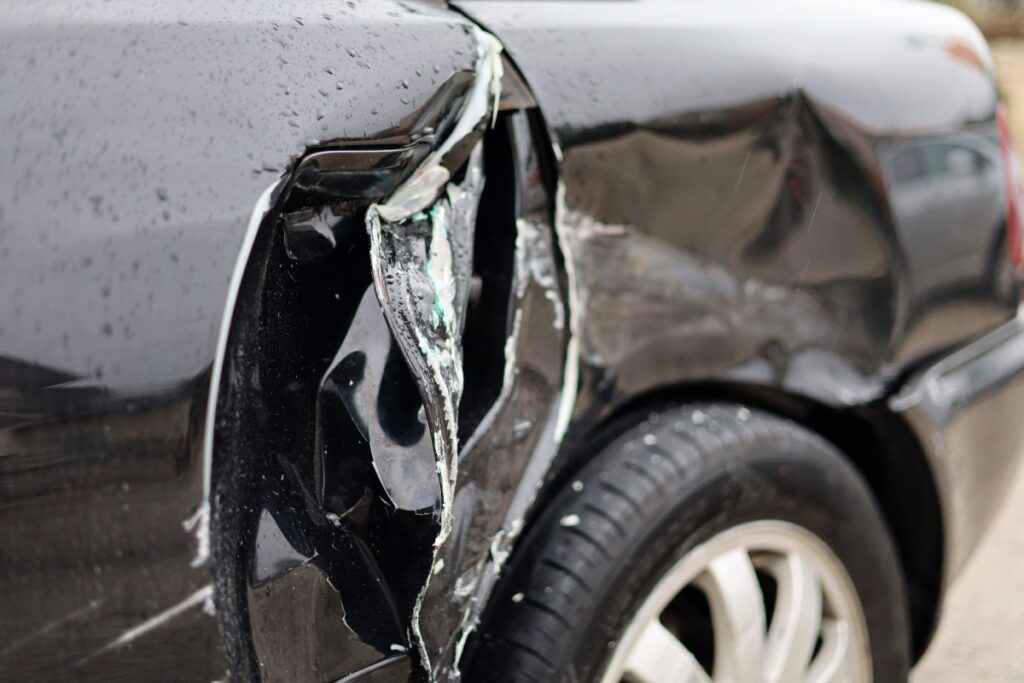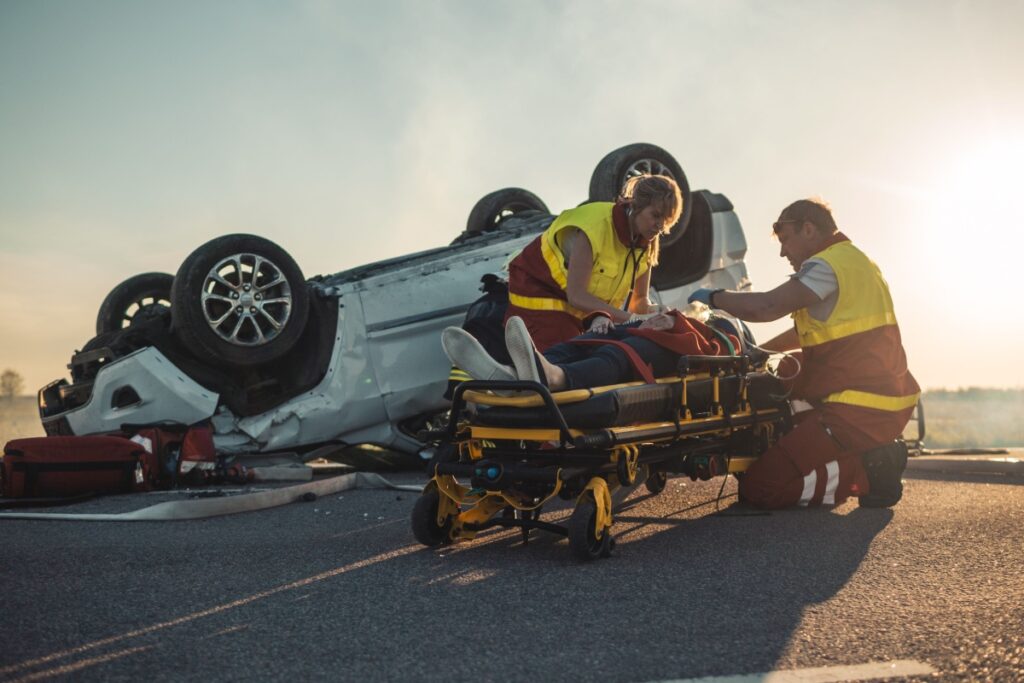You may not consider the dangers of severe truck accidents whether visiting Las Vegas for a vacation or when residing in the city. However, collisions with semi-trucks, which are frequently seen on the Las Vegas Beltway, can lead to serious and frequently deadly injuries. It’s true that 18-wheelers commonly use Interstate 15 near the Strip, so expect to share the road with them. According to the Insurance Institute for Highway Safety (IIHS) and Highway Loss Data Institute (HLDI), due to semi-trucks’ enormous size and weight, drivers and passengers of smaller cars are particularly at risk in truck collisions. In fact, heavy trucks typically weigh between 20 and 30 times more than passenger cars and have higher ground clearance. This means that a smaller car could underride a huge tractor during a collision, resulting in fatal injuries. What should you do if a big trucking accident occurs to you in Las Vegas?
Take Pictures of the Truck Crash Scene
As we just established, fatalities and serious injuries are common in huge truck accidents. As a result, it may be challenging for an accident victim to accurately record the scene. However, it might be very beneficial for your truck accident claim if you are involved in a collision and are able to gather information at the scene. You ought to carry out the following:
Take photos: Use the camera on your smartphone to capture the incident, including any property damage in close-up photographs as well as broader shots of the entire crash scene.
Contact and insurance details for other parties: Make sure you get the names, addresses, and phone numbers of any other drivers who may have been involved in the crash.
Was there anyone there to see the collision? Make careful to get the names and contact details of any witnesses who might be able to support your account of what happened.
Discover the Las Vegas Liability in a Trucking Accident
We frequently work with plaintiffs who have suffered serious injuries in car accidents and are interested in finding out who will probably be held accountable. Truck accidents frequently include a number of different participants, all of whom may share some degree of blame for the crash and any injuries it may have caused. In research on the causes of large-truck crashes, the National Highway Traffic Safety Administration (NHTSA) looked at a wide range of factors, including the following:
- Caused by inadequate vehicle upkeep or overloading, a tire blowout or flat;
- Defective auto parts, like the steering or brakes;
- Bad road conditions brought on by inadequate road upkeep;
- A truck traveling too quickly for the weather or road conditions, or exceeding the posted speed limit;
- A jackknife incident brought on by faulty components or bad weather;
- Truck drifting out of its lane or lane encroachment as a result of an inattentive or sleepy truck driver;
- Vehicle approaching the truck from the wrong side of the road or in the opposite direction
Depending on the precise causes of the incident, a number of different parties could be held accountable for truck accidents. Indicative examples of potential defendants include the following, without limitation:
Truck driver: for accidents brought on by driver faults, such as sleepy driving, aggressive driving, or driving while intoxicated;
Trucking firm: The trucking company may be held responsible for accidents brought on by driver error or poor vehicle maintenance;
Owner of the semi-truck: In some cases, the semi-truck is owned by a third party who may be responsible for an accident, particularly if the accident was caused by subpar truck maintenance;
Large trucks are frequently loaded by a third party, and if incorrect loading caused the collision, the loading business or its loaders may be held liable for damages;
Auto designer: When a truck component or part is defective and causes a crash, the designer of that auto component or part may be held accountable;
The property owner where the accident happened: Whether it is private or public property, the owner may be liable for a plaintiff’s injuries if a roadway or parking lot where an incident occurred was not properly maintained.
To be clear, if more than one party contributed to the collision, a plaintiff may bring an action against many defendants. The appropriate course of action for pursuing your claim can be determined with the assistance of a Nevada personal injury lawyer.
Know Your Options Under Nevada Law for Pursuing Damages
What types of damages are available to you if you file a truck accident claim? In accordance with Nevada law, plaintiffs who sustain severe injuries in truck accidents often have two options for compensatory damages:
Economic damages: these make up for a plaintiff’s immediate, concrete economic losses (like medical expenses, surgery fees, or missed wages); and
Non-economic damages are meant to make up for a plaintiff’s irrational losses that are not economically based (such as pain and suffering).
In some circumstances, the plaintiff may also be able to get punitive damages if the defendant acted in a way that suggested a deliberate disregard for the safety of others on the road, and that behavior caused the collision. Although punitive damages are rather uncommon in most truck accident cases, you should talk to a Nevada auto accident lawyer about whether they would be appropriate in your instance.
And if a loved one was killed in a truck accident, you should find out more about bringing a wrongful death claim.
Do Not Delay in Filing Your Las Vegas Trucking Accident Claim
How long do you have to file a lawsuit after a truck accident? According to Nevada law, if you were hurt in a truck accident, you have two years from the date of your injury to make a claim (in other words, the date of the accident). The statute of limitations refers to this time frame. If you don’t submit your lawsuit before the deadline, you risk not being compensated for your losses.
The statute of limitations for wrongful death lawsuits following a trucking accident is also two years. However, the clock starts ticking when the wounded sufferer passes away, not when she or he sustained the wounds that led to his demise. Contact us immediately to get the process started!






